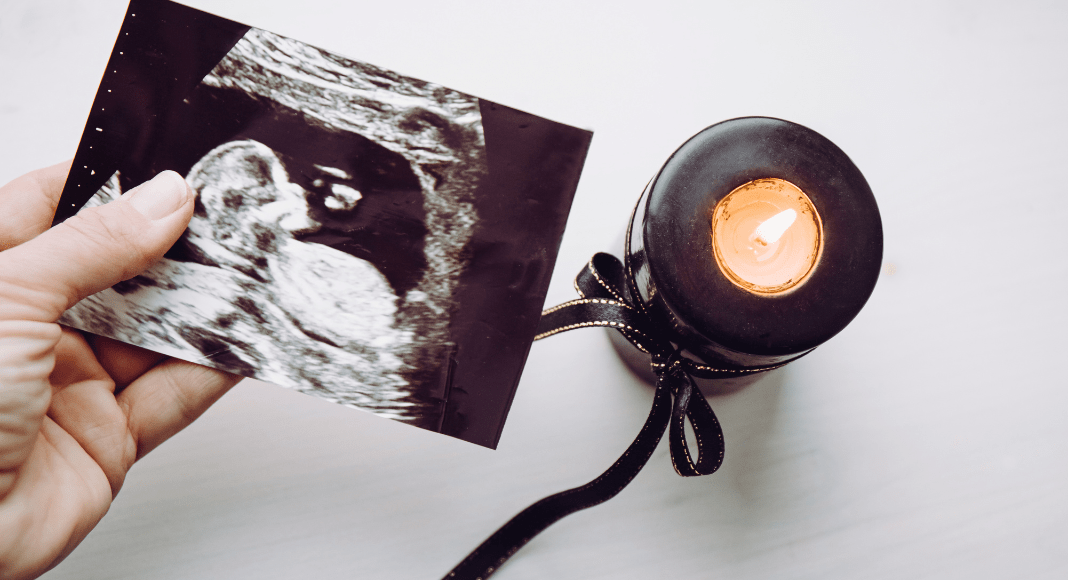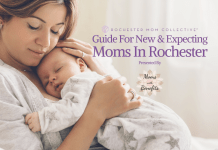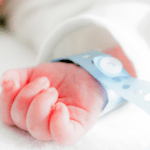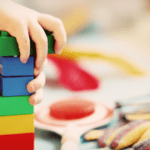
October is Infant Loss Awareness Month. US Congress and President Ronald Reagan instated this special month in 1988 to bring recognition and support to the tragic grief of these bereaved parents. October 15th, 2003, marked the first Global Wave of Light Ceremony in the United Kingdom. Anyone and everyone can participate in The Wave of Light Event. All you have to do is to light a candle at 7pm in your local time zone on October 15th. This will be happening all across the globe creating a wave of light to represent the brief lives of the little ones who left us too soon.
The startling statistics are that 1 in every 4 women experience a miscarriage, and 1 out of every 175 babies are stillborn or pass away before their 1st birthday (CDC, 9/2022). The hope is that you haven’t experienced this type of loss yourself. The odds are that even if that is true, that someone in your close circle has. My hope is that you will glean some practical and informative ways to come alongside those who have walked this road.
So Many Questions
After the loss of a loved one, it can be overwhelming to find the words to express our condolences. It is one thing to lose a parent or grandparent. And quite another when it comes to the death of a child. Sometimes we can feel as if we are stumbling in the dark on this one. Often our words and actions feel inadequate and awkward. Some of your questions might be:
“What do I say?”
“Should I have said more?”
“Did I say too much?”
“I feel so helpless! How could I possibly help?”
“Should I just leave them alone? I certainly don’t want to intrude while they’re in the middle of grieving.”
“Do I ask them about the baby?”
“Is I better to steer clear of baby talk altogether? I don’t want to make them sad.”
These are questions that I’m sure we have had to ask ourselves in the face of loss, especially miscarriage, stillbirth or infant loss. Before we dive into how we can support a friend who has lost their baby, lets dispel some of the myths surrounding this sensitive topic.
Common Misconceptions
I don’t know anyone who’s lost a baby.
To assume that your coworker, neighbor, friend, or even a loved one have not walked this difficult road of infant loss may be presumptuous. Miscarriage and infant loss is a taboo topic worldwide. This is widely due to the negative stigma attached to such loss and the psychological toll it takes on a person. Women, and the men who walk with them, may keep their grief hidden for so many reasons. Though they are silent about their loss or delay in sharing the news, it remains true that their pain runs deep and their loss is very real. Studies reveal that the loss of a pregnancy or a child can affect the mental health of her, and her family, for years.

Why is she so upset? She wasn’t even that far along.
Another misconception is that the earlier a pregnancy is lost, the less strain this causes to the mental health of the mother and family. As found in the Research in Nursing and Health journal, researchers have found absolutely no link to the length of gestation being related to the intensity of grief, anxiety or depression. This means that if a woman loses her baby at 6 weeks instead of 40 weeks, the grief is still no less real, traumatic, and painful to that first mama as it is to the second mama.
Miscarriage must be less traumatic since you don’t actually get to meet the baby.
According to the textbooks, stillbirth is defined as loss of a baby before or during delivery at >20 weeks gestation. Miscarriage, on the other hand, is defined at loss of a baby <20 week of pregnancy. Please be careful to not assume that one type of loss is more/less heart wrenching that the other. They both hold much reason for sorrow. Be consistent in your sympathy to a loss at ANY stage of pregnancy.
If you were to do a little digging, you will find many stories of miscarriages that resulted in a delivery where mom did get to hold her precious baby, just as in many stillbirth stories. For those mamas who went through the birthing process for their miscarried babies, I think it’s important to acknowledge that they also experienced a stillbirth.
There are also those women who choose to have a D&C after they learn that their baby had no heartbeat. D&C is a surgical procedure to remove the baby from the uterus after the baby has passed away. The difficulties and struggles that a woman may have after such an invasive and traumatic procedure are significant.
One way of losing a baby is no easier than another. The truth remains that loss at any stage via any method (natural delivery, induced delivery, or D&C) can be extremely traumatic.
What do I do now?
Acknowledge the loss.
This can be as simple as texting someone, “My heart is hurting for you in the loss of your baby. I am here if you need to talk.” If they seem comfortable with continuing the conversation, you could ask a few more questions such as listed below.

“Were you far enough along to feel the baby move?”
“Did you get an ultrasound picture of the baby?”
“Did you get to hold the baby?”
“Was your baby a boy or a girl?”
“Who did your baby look like?”
“Did you get pictures with your baby?”
“What did you name the baby’s?”
“Who got to meet the baby?”
Follow their lead on whether or not they are open to talking about these things. And be thoughtful in the questions that you do choose to ask based on the situation. Maybe they need a little bit more time. And that’s okay. Allowing them the room to share when they are ready can mean the world to them.
It is the most awkward situation to have the proverbial elephant filling up the entire room suffocating everyone. You may think that you are helping a friend or loved one by avoiding such an emotionally charged conversation. It’s as if you feel responsible for keeping them from thinking about their loss. The truth is that their experience of loss is often already in the forefront of their minds. Avoiding the topic altogether can actually cause them additional pain. This, coupled with feelings of isolation and feeling that others “don’t care” may only add to their grief.
Be a listening ear.
I’m convinced that processing grief takes a lifetime. Affirm your willingness to listen when they are ready. And if they’re not yet able to talk, hand them a nice pen, a pretty notebook, and a box of the softest tissues. Encourage them to journal. It’s been said to to be the cheapest form of therapy.
If at all possible, refrain from telling someone, “I know exactly how you feel.” You want to acknowledge that their experience was unique to them. Otherwise, they may feel marginalized and lumped in with others who’ve walked through loss. If you are trying to connect with someone who has lost their baby by sharing your own experience of loss, be sure to express to them that you realize that your and their experiences are different. This will humanize their experience and allow for more room for healing.
Offer specific & practical help.
For times like these, refrain from asking your friend, “What can I do to help?”. Or, “Let me know if you need anything”. A grieving person may have difficulty thinking through or expressing what their needs might be in the days and weeks following the loss of a child. Instead of a cliche response like the ones listed above, provide them with specific offers and cues, such as:

“I’m going for a hike. Would you or any of your kids like to get out of the house and come with me?”
“I’m going to bring you a meal on Saturday. What time can I drop it off?”
“Can I take your kids to the zoo today? Maybe you can stay home and take a bath.”
“Hey, can I come clean your bathroom on Thursday?”
They will appreciate not having to do much thinking beyond the ability to answer a simple “yes” or “no” to your request.
Be patient.
Grief over the death of a child is profound. This type of loss can take years, even a lifetime, to wade through the wide range of emotions surrounding such an event. Please be patient with your loved one and give them the space and time to grieve in any and every way. And for a long as they possibly may need. You can remind them that grieving is not a luxury, but a necessary part of the healing process.
Remember their baby.
In the context of time, the further removed a person or family is from the loss of their child, the more it seems that others have forgotten. Speak up on those significant dates. It can be as simple as sending them a text or card to let them know that you are thinking of them and the baby they lost. Significant dates can include the day a heartbeat was not detected, the date of the stillbirth or miscarriage delivery, or the anticipated due date. Ask your friend to share with you what dates are most significant to them and add them to your calendar. The text or card could read as follows:
“I know that today is an especially important day for you as you had to both say hello and goodbye to your baby. I am thinking of and praying for you.”
“I pray that this year has brought a measure of healing. I continue to lift you up in prayer as you walk this journey of grief over the loss of your baby. I am here if you need to talk.”
“Today was the date you expected to meet you little one. Please know that I remember and am thinking of and praying for you.”
Let’s Break the Silence
Please join me in breaking the silence over the loss of the little ones that have left us much too soon. Educate yourself on the topic of baby loss. Use your knowledge to act from a heart of compassion and love towards these women and their families. Sometimes this is just as simple as being present. No words required. This applies if you are walking with someone through a current loss or if you are finding out months or even years after the fact. Support is needed at any stage of grief, whether it’s been days or years.
If you too, have lost your baby, consider sharing your story. Talking about your baby could bring you a measure of healing over your loss while offering comfort to another. A friend who experienced the stillbirth of her baby girl at 28 weeks expressed it point on when she said, “[Infant Loss] is never a Club that that I wanted to be a part of. But I’m so thankful to know that I’m not in the Club alone.”















